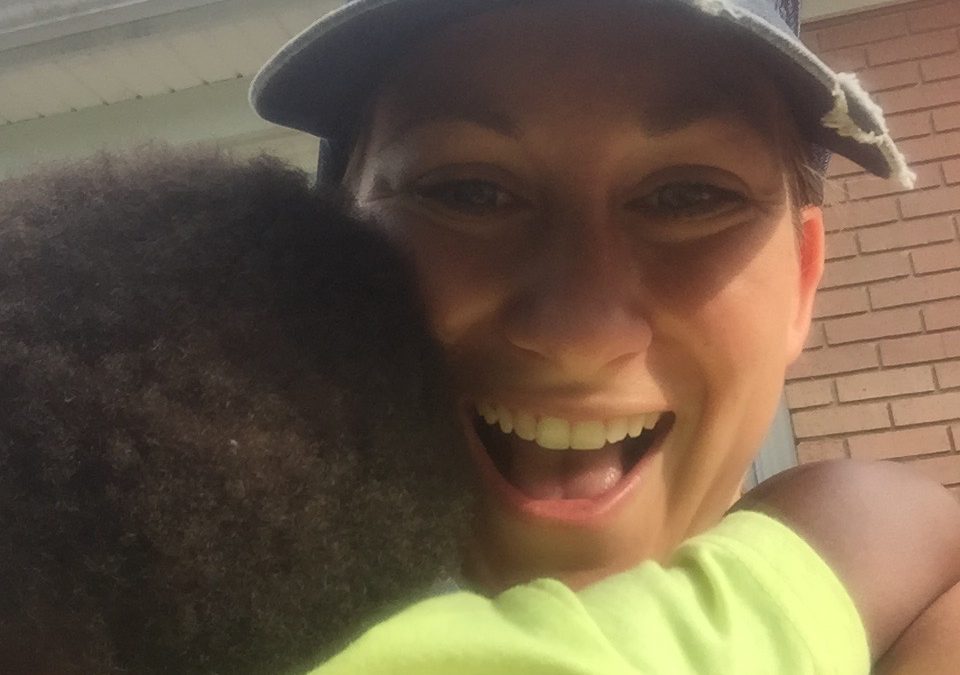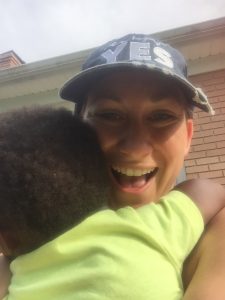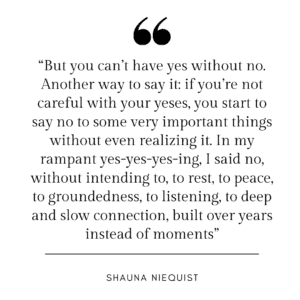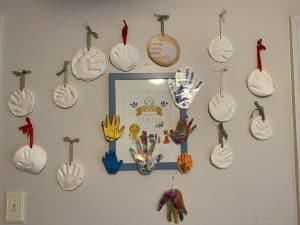
There are lots of questions when raising tiny humans. How are we ever sure we are making the right choice when we have no crystal ball to see the future? We stress over little things like what snacks to buy or what activities to enroll our kids in. We also worry about bigger overarching things like their safety, well-being, and if we are modeling how to be a good human. I imagine many families who care deeply about vulnerable children and families wonder simultaneously, “am I doing enough?” and when they consider the permanent children in their home, “am I taking on too much at the sake of my own family’s well being?”
There’s no doubt we live in a world that encourages us to compare ourselves with others – what we do, how we do it, when we hit milestones. We are inundated with images on social medias of perfectly styled homes, beautifully plated and well planned family meals, children posing sweetly for the camera. We feel guilty when our choices, and thus our lives, don’t appear to match up. We don’t buy organic or we don’t actually read a book every night (at least not without falling asleep in the middle of it). We are constantly comparing ourselves to our neighbors and our friends. How do we measure up? How will our kids succeed or excel compared to their peers? I think this is magnified in foster care in some ways, in a world where we are surrounded by other helpers, givers, and those who are continually making sacrifices for others. It can sometimes feel like we are playing in the “good people” olympics.
Gosh! If you focus on what everyone else is doing, you will never compare. Jane has eight kids and you only have two. Sally takes teenagers, but thinking about all that comes with angsty teens totally stresses you out. Martha is able to feed all her kids organic, nutritionally balanced, home cooked meals and drop them off at soccer on time, you can barely get them to school with two shoes on.
Parenting is always hard. Foster parenting is hard too, if not harder. Our phones keep ringing. There is always desperation on the other end of the line. A kid needs a home. Can you help? Can you make room? Can you open your door?
 In a short period of time, you have to make a potentially life changing decision. It’s not just as simple as “yes” or “no.” The one word answer (yes or no) impacts everything. It impacts you. Your life. Your family. Your kids. Your work. Your schedule. Your routine. For a day, a week, a month, a year, more, maybe forever. You never really know. And of course, most importantly, it also dramatically impacts another life. The life of a child. A family. Who have little to no choice in the matter. Your “yes” or your “no” changes their lives too. That’s a lot of pressure.
In a short period of time, you have to make a potentially life changing decision. It’s not just as simple as “yes” or “no.” The one word answer (yes or no) impacts everything. It impacts you. Your life. Your family. Your kids. Your work. Your schedule. Your routine. For a day, a week, a month, a year, more, maybe forever. You never really know. And of course, most importantly, it also dramatically impacts another life. The life of a child. A family. Who have little to no choice in the matter. Your “yes” or your “no” changes their lives too. That’s a lot of pressure.
Can you say “no” to a potential placement when you get that call in the middle of the night? Of course! Can you say “no” at any time without consequence? Technically, yes. You will get called again… and you don’t have to give a reason other than this will not work for your family right now. You don’t have to say “yes” to every call. In fact, it is encouraged that you will consider your decision seriously – can you truly commit to this child? If you say “no” there will be another call. So how do you decide your “yes” or your “no?”
There is so much up in the air. So much that no one has an answer to. And you are often expected to give an answer on the spot. There are so many other kids waiting in the office that need a home after all. And the truth is, there is a need for foster families to keep saying yes. There are children and youth that need your “yes.” There are siblings that need someone to say “yes” to keep them together. I do not want to make light of that in the slightest. With a shortage of foster homes – especially for teens and siblings – across the nation we cannot ignore the need for “yes.”
 So then how do you decide? How do you know what is best for you, your family, that very real child that you are being asked to care for? Maybe there is no right answer. Yes. No. There never really seems to be one clear answer in foster care. No clear right or wrong, yes or no. Sometimes I can barely tell the difference between up and down. Foster parents choose to move forward in less than ideal circumstances all the time. We keep saying “yes” even when “yes” is hard. And sometimes we have to say “no” even when that is the harder choice.
So then how do you decide? How do you know what is best for you, your family, that very real child that you are being asked to care for? Maybe there is no right answer. Yes. No. There never really seems to be one clear answer in foster care. No clear right or wrong, yes or no. Sometimes I can barely tell the difference between up and down. Foster parents choose to move forward in less than ideal circumstances all the time. We keep saying “yes” even when “yes” is hard. And sometimes we have to say “no” even when that is the harder choice.
I had to learn to say no. It was hard for me as a people pleaser. I realized that my role as a foster parent was such an important part of my identity that I didn’t feel like I could say “no” without losing part of that identity. It took a long time for me to recognize my pride. I felt like if I didn’t say “yes,” who would? I am not a savior. I am not a hero. I’m a normal person and normal people have boundaries. I need to choose my “yes” and my “no” more wisely – for myself, my family, and for the children and families that would not be served by a half-hearted yes, by the lack of my full attention or energy.

There are many reasons to say yes. There are many reasons to say no. There is no one right answer in foster care.



